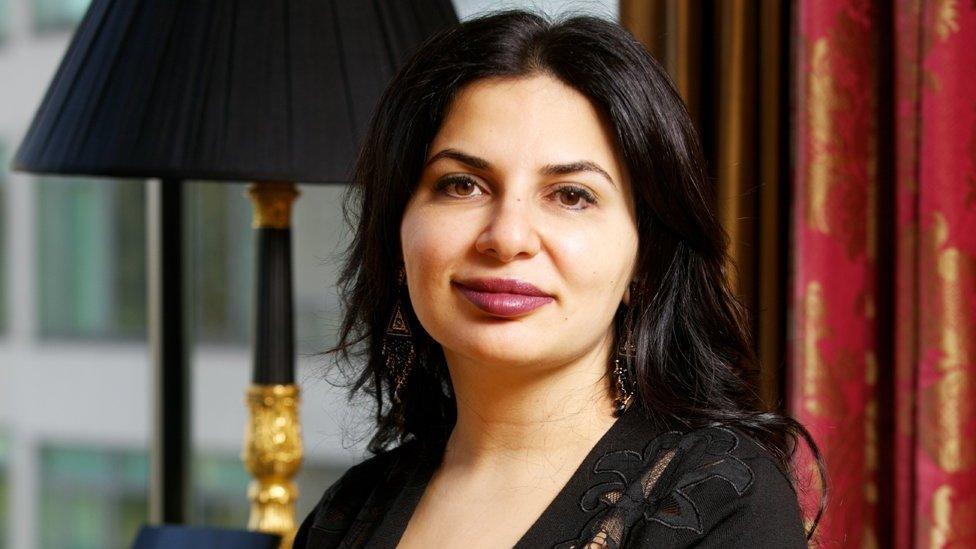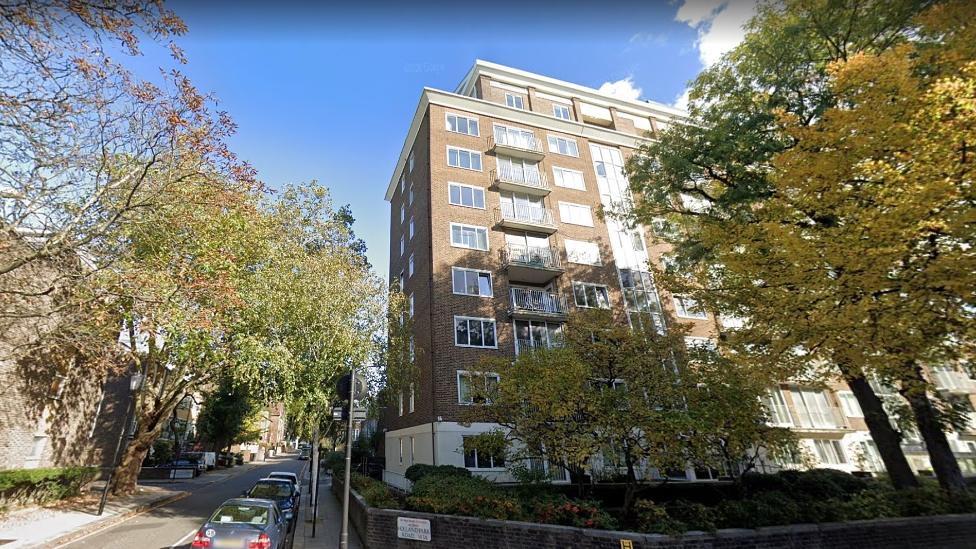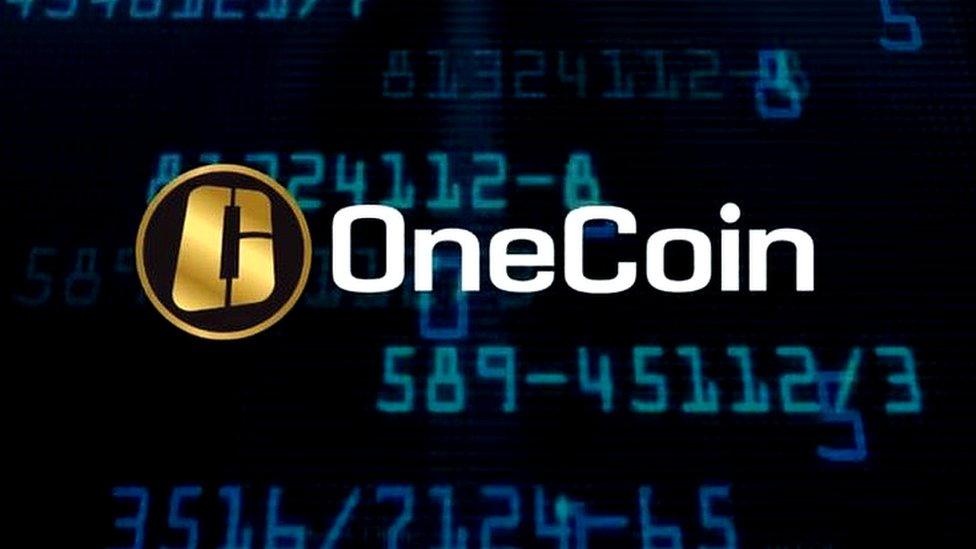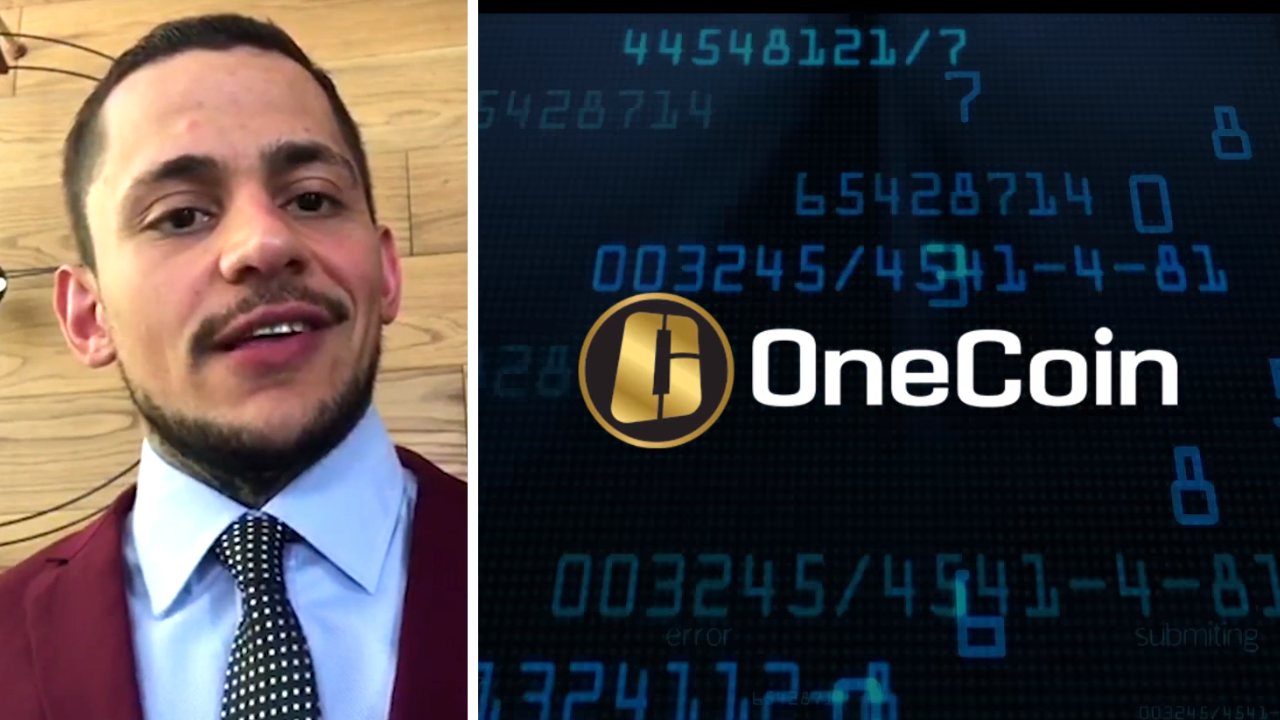Cryptoqueen: Has the missing fugitive reappeared?
- Published

Dr Ruja's whereabouts are unknown, but The Missing Cryptoqueen podcast is following up leads
When a plush London penthouse flat bought by the "missing cryptoqueen" Ruja Ignatova re-appeared on the market, it appeared the fugitive scammer was orchestrating a sale from the shadows.
The same week her £12.5m "ultimate penthouse" was listed for sale, new UK transparency rules meant Ms Ignatova was also publicly revealed as the owner.
But the OneCoin fake cryptocurrency founder hasn't been seen for five years and currently sits on the FBI's 10 most-wanted list.
The BBC previously revealed how she secretly bought the four-bedroom penthouse, said to have once been stuffed full of expensive artwork and designer clothes, after financial regulators in at least one European country had already issued a warning about her fake cryptocurrency.
Ms Ignatova, a 42-year-old Bulgaria-born German national, disappeared on 25 October 2017 after being tipped-off about intensifying police investigations into her Sofia-based scam.
OneCoin, created in 2014, is one of the biggest known of such scams, with the FBI estimating its value at $4bn (£3.2bn).
In the UK alone, the BBC estimates that investors lost more than £100m.
Layla Begum, from Bow, east London, says her family lost more than £54,000 in OneCoin when she was persuaded to invest by a family friend.

Abbots House, in leafy Kensington, seen from Addison Road
But now, neither the UK police nor Ms Ignatova herself are behind the sale of her Kensington pad. Instead, it is prosecutors in the north-west German city of Bielefeld, the BBC can reveal.
Better known for its Dr Oetker headquarters and 13th Century castle, quaint Bielefeld is also home to economic crime specialists, who are leading European efforts to prosecute the OneCoin ringleader.
With the approval of Bielefeld's prosecutors, Ms Ignatova's London penthouse went back on the market this month. The flat has been subject to a Guernsey court order since 4 November 2021, the day after the BBC revealed how the channel island's offshore secrecy obscured her purchase.
Before Ms Ignatova was declared the owner of the property, the formal owner was a Guernsey-based company registered at the address of Aquitaine Group Limited, a wealth manager who has never replied to the BBC's questions about their work for the 'Cryptoqueen'.
Bielefeld's prosecutors have also accused Ms Ignatova's German lawyer of money laundering for transferring €20m (£17.5m) to fund the purchase of the penthouse and a second flat in the same building. Martin Breidenbach denies the charge. His trial, along with two others, continues.

Andy Warhol's Red Lenin hangs over the fireplace
When the Kensington penthouse re-appeared on the market, the asking price was £12.5m, one million less than the price paid in 2016.
It was later reportedly reduced again, to £11m, but is no longer listed for sale. The estate agent, Knight Frank, did not respond to the BBC's questions about whether it had been sold, but reiterated that it "complied fully at all times with its legal and regulatory obligations".
Under new transparency rules, a failure to list the ultimate owner of a UK property can prevent it being sold in the UK. Had Ms Ignatova not been disclosed as the penthouse owner by 31 January 2023, a sale might not have been possible.
The new legal requirements also demand the owner's "usual residential address" is filed. In Ms Ignatova's case, Companies House would not confirm if it had been provided with such an address for the fugitive, but said: "We work closely with law enforcement colleagues".
Senior prosecutor Gerald Ruebsam hopes any proceeds of the sale of the London penthouse might one day compensate OneCoin victims.
"Initially, we're trying to avoid the money going back to the people behind the scam. That's our first idea, to take away money earned by crime," he said.
"It's not clear yet whether money will go to OneCoin investors, we have to wait and see how things progress."
OneCoin investor Ms Begum was pleased the German authorities had approved the penthouse sale, but was critical of the way City of London Police had handled its investigation.
She said: "I do believe that the UK authorities need to help everyone that's British and has legitimate evidence to say 'that's my money that went into OneCoin'.
"We need that kind of support and I think they've just been really slack about it."

The developers described it as the "ultimate penthouse" - the pool has a retractable roof
In 2019, the City of London Police had ended its OneCoin investigation, saying it was "unable to identify any OneCoin assets in the UK".
Det Insp Paul Curtis told the BBC: "The force has provided assistance to foreign law enforcement partners in respect of their investigations and will continue to do so."
In December 2022, OneCoin's co-founder Sebastian Greenwood pleaded guilty in New York to fraud and money laundering charges.
But the search for Ms Ignatova continues, with the FBI offering a $100,000 (£80,600) reward for information leading to her arrest.
Any tips on her whereabouts can also be shared with the BBC by emailing cryptoqueen@bbc.co.uk.

Listen to The Missing Cryptoqueen podcast on BBC Sounds - the search for Dr Ruja Ignatova continues.

- Published21 November 2019

- Published14 November 2019

- Published26 September 2019